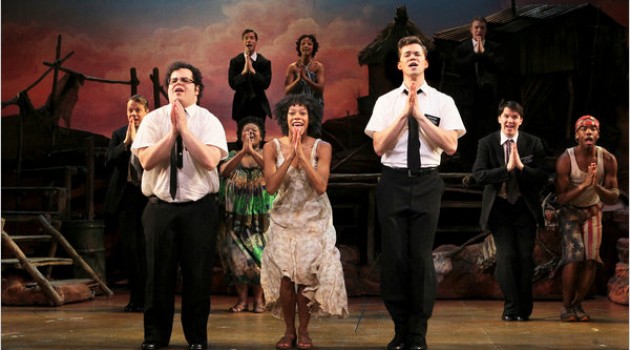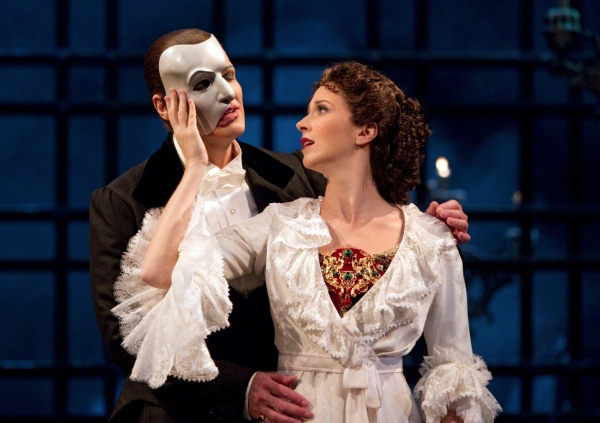Eugene O’Neill Theatre
230 West 49th St.
Tickets: $69-$477
www.bookofmormonbroadway.com
Over the course of fifteen seasons, South Park creators Trey Parker and Matt Stone have skewered just about every religion imaginable, including a November 2003 episode in which they poked some very good natured fun at Mormonism. The duo behind Team America: World Police, BASEketball, and Orgazmo have now taken a huge step forward with their uproarious Broadway debut, The Book of Mormon. Teaming up with composer Robert Lopez and codirector and choreographer Casey Nicholaw, Parker and Stone have expanded their playful attack on the Mormons — and organized religion in general — in an inventive, riotous, no-holds-barred runaway hit musical that took home nine Tony awards. Hoping to get a prime location for his missionary assignment, Elder Price (Andrew Rannells) instead gets sent to deepest, darkest Africa, paired with the slovenly and not very well prepared Elder Cunningham (Josh Gad), who is so happy to be part of something that he’s up for just about anything. After meeting their fellow Mormon missionaries, they learn that they have not had much success knocking on doors, trying to spread the rather bizarre story of Joseph Smith and the secret golden plates. While the childlike Elder Cunningham develops a crush on the beautiful Nabulungi (Nikki M. James), Mafala Hatimbi (Michael Potts) continually declares, “I have maggots in my scrotum,” and Elder McKinley (Rory O’Malley) and the other Mormons share how to simply “turn off” any unpure thoughts and not get swallowed up in their endless “Spooky Mormon Hell Dream.” Using clever staging techniques, Nicholaw and Parker go back and forth between the worlds of the Mormons and the Africans as they slowly begin to merge. Although Mormonism takes the brunt of the attack, songs such as “Making Things Up Again” and “I Believe” make it clear that The Book of Mormon could have easily been about many other religions, all of which have questionable histories and involve unusual contemporary practices and traditions. But like they say in the show, “Tomorrow’s a latter day” and “To each his own.” In a meta-twist, worshiping The Book of Mormon has become somewhat of a religion itself, placing the musical on its own heavenly golden pedestal; while it’s not quite as rapturous as all that, it’s still one of the best musical comedies to hit Broadway in several years, a nonstop laugh fest that also proves to have plenty of heart.

